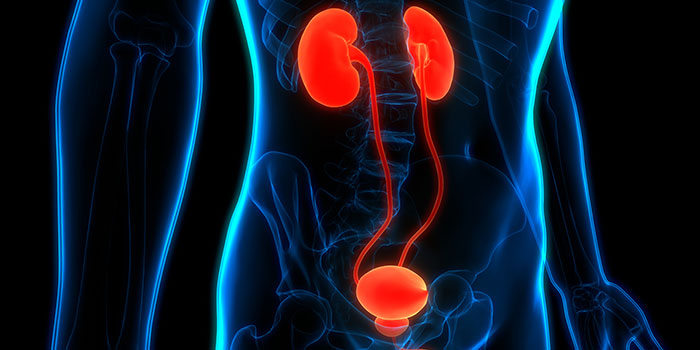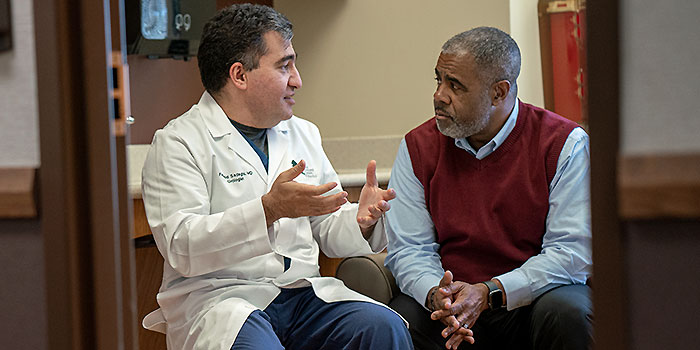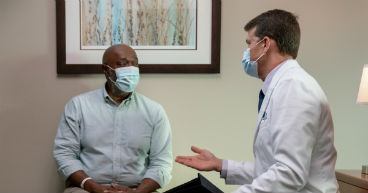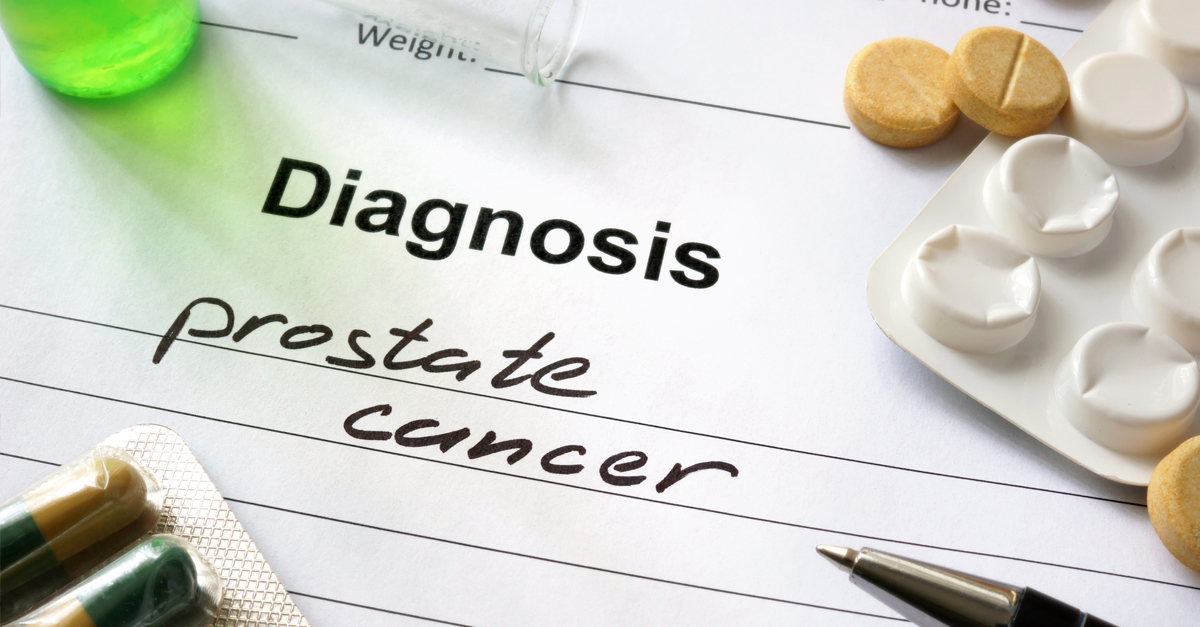
No matter the cancer type, treatments often cause side effects that affect patients’ quality of life. But with prostate cancer, the potential side effects may be particularly concerning to men who are trying to decide which approach is right for them.
Prostate cancer treatments often impact a patient’s sex life. Surgery, radiation therapy and other treatments may cause side effects like low sex drive, loss of penis length, dry orgasm, low sperm count and/or erectile dysfunction. Yet experts say most of these side effects are manageable, and many men have a strong chance of returning to a healthy sex life after prostate cancer treatment.
“Unfortunately, sexual dysfunction is a possibility for nearly all treatment options for prostate cancer, including surgery,” says Scott Shelfo, MD, FACS, Medical Director of Urology at City of Hope Atlanta. “The degree of dysfunction depends on many factors, including the patient’s overall health, co-existing medical problems, as well as the patient’s level of sexual function and ability before treatment.”
To help you understand the potential impacts and side effects of prostate cancer treatment, this article explores the options available for patients to help regain their sexual health and vitality. Topics include:
- How does prostate cancer affect you sexually?
- Does prostate cancer cause ED?
- Talking to your doctor about sex after prostate cancer
- Penile rehabilitation
- Treatments for sexual side effects after prostate cancer
If you’ve been diagnosed with prostate cancer and are interested in a second opinion on your diagnosis and treatment plan, call us or chat online with a member of our team.
How does prostate cancer affect you sexually?
Various treatments for prostate cancer may cause temporary or lasting side effects. Among the most common are those listed below.
Surgery: Many men who undergo prostate cancer surgery—known as a radical prostatectomy, in which the prostate is surgically removed before tumors have spread—experience at least temporary erectile dysfunction (ED). But recent developments in nerve-sparing prostatectomy may reduce the chances of ED and allow patients to have a healthy sex life after prostate removal. So, can men get an erection and regain sexual function without a prostate after a prostatectomy? Yes.
Radiation therapy: Various types of radiation therapy—brachytherapy, external beam radiation and stereotactic body radiation therapy—are also used to treat prostate cancer. Each type of therapy causes somewhat different side effects. About half of all prostate cancer patients who undergo any of these types of radiation therapy are likely to develop erectile dysfunction, according to an article published in Advances in Radiation Oncology.
“When you compare surgery with radiation therapy, both may affect erections,” says Dr. Shelfo. “Surgery is usually more immediate, and sexual dysfunction has the potential with time to improve. With radiation therapy, erections are usually less affected in the beginning, but over time—months or, sometimes, years—sexual dysfunction may develop. Both treatments may affect sexual function, resulting in no semen or ability to attain an erection.”
Hormone therapy: Sexual side effects may impact prostate cancer patients treated with hormone therapy, which reduces the level of male hormones (the androgens testosterone and dihydrotestosterone). Hormone therapy is designed to shrink and/or slow the growth of cancer cells, which are fueled by androgens. But some men find they’ve lost libido (sex drive) after treatment. Others may maintain their desire for sex but are unable to get an erection or reach orgasm. Hormone therapy may also reduce the amount of semen released at ejaculation.
Chemotherapy: Drugs used to kill cancer cells or limit their growth may also impact the quality of some patients’ sex lives. These anti-cancer drugs work by targeting rapidly growing cancer cells either throughout the body or in a specific area of the body, such as the prostate. But these powerful agents may cause some patients to experience a lower sex drive and have difficulty achieving an erection.

Does prostate cancer cause ED?
Prostate cancer does not directly cause ED, but all prostate cancer treatments may raise the risk of sexual side effects, particularly ED. Near the prostate are key nerves, blood vessels and muscles that help produce an erection, and they may be damaged by treatment.
Up to 85 percent of men who undergo radical prostatectomy report at least temporary ED, according recent studies. This typically results from nerves damaged during surgery. But recent developments in nerve-sparing prostatectomy may reduce the chances of ED-related nerve damage.
“Another factor is the surgeon’s skill level for performing the nerve-sparing technique, which if done correctly, may improve patients’ likelihood of retaining erectile function,” says Dr. Shelfo.
He adds that modern post-treatment therapies help men return to an active sex life, regardless of their age and the option they choose.
“Most men we see are in their 40s, 50s and 60s and still enjoy a healthy sex life,” says Dr. Shelfo, noting a patient’s age and overall health influence his ability to return to an active sex life after treatment, with younger men more likely to regain sexual function. “So not only are we talking about the appropriate way to treat their cancer, but we're trying to limit the side effects of treatment so that they keep their quality of life.”
Prostate cancer experts have identified several strategies that may help men regain their sexual vitality, including medications, healthy lifestyle changes—such as weight loss and smoking cessation—psychosexual counseling, pelvic floor exercises, vacuum erection devices and creams.
Surgically implanted penile implants may also be an option to address ED. These narrow, flexible, plastic tubes are surgically inserted into the penis. They have a balloon-like device that inflates to create a hard and erect penis.
Talking to your doctor about sex after prostate cancer
If you’ve been diagnosed with prostate cancer, it’s important to discuss the impact of various treatment options on your sex life—before, during and after undergoing the therapy you choose. Your doctor may be able to put your mind at least by detailing available post-treatment options that allow you to maintain a robust sex life.
Experts recommend early intervention and support to manage treatment side effects and help patients adjust. But some men find discussions of certain topics—such as reduced libido, ED and sexual dysfunction caused by surgery, radiation therapy and other treatments—embarrassing to discuss.
It’s important to keep in mind that while sexual dysfunction is an almost-inevitable side effect of treatment, some level of function may be preserved, or regained, during breaks in treatment and afterward. That’s why it’s critical to have frank discussions with your doctor about your options.
Patients shouldn’t be shy about discussing intimacy issues with their doctor. He or she may be able to prescribe medications to help.
Drugs like sildenafil (Viagra®), tadalafil (Cialis®) or vardenafil (Levitra®) increase blood flow to the penis, making it easier to achieve an erection. Generic versions of these drugs may also be available.
But these drugs may not help men achieve an erection if the nerves responsible aren’t healthy and may only work for a small percentage of men in the first few months after surgery, according to a 2017 study published in the International Journal of Sexual Health.
But they’re not the only option, which is why your doctor is an important resource to help you explore and understand your choices, Dr. Shelfo notes.

Penile rehabilitation
If you have erection problems after prostate cancer treatment, your doctor may recommend “penile rehabilitation,” a term to describe the use of any intervention or combination that may help you achieve and maintain erections and return your sexual function to pre-treatment levels.
Penile rehab includes a wide variety of options, including those listed below.
Medicated pellets: Alprostadil (MUSE®) is a urethral suppository—a medicated pellet inserted into the opening at the tip of the penis. It’s designed to stimulate blood flow and usually results in an erection within 5 to 15 minutes. Alprostadil, which may also be delivered as an injection directly into the side of the penis, is available as a cream for application directly into the head of the penis.
Mechanical devices: Vacuum pumps are low-cost and non-invasive devices to help men achieve erections. The penis is placed inside a plastic cylinder, and negative external pressure is used to increase blood flow. The device is designed to increase blood oxygenation. A constriction ring may also be placed at the base of the penis after use to prevent blood from escaping and to maintain an erection for sexual activity.
The goal of penile rehabilitation is to restore the patient’s function after surgery, radiation therapy or other treatments. Most rehab strategies start just a few weeks after treatment, regardless of whether the patient is sexually active at this stage.
The process is similar to physical therapy after knee surgery or to rehab on an injured an arm or leg. Starting treatment soon after surgery may improve the chance of regaining and retaining an active sex life.
While regaining erectile function isn’t possible for all men treated for prostate cancer, it’s important to remember that an erection is just one aspect of a satisfying sex life. Intimacy is another major component, one that may become more important as sexual relationships become more challenging after cancer treatment.
Treatments for sexual side effects after prostate cancer
In addition to drugs, pellets, injections, pumps and implants, several other strategies may combat side effects after prostate cancer treatment, including those below.
Lifestyle changes: Risk factors linked to erectile dysfunction include obesity, lack of exercise and tobacco use. Lifestyle modifications may help address these other factors in men who’ve undergone prostate cancer treatment.
Psychosexual counseling: Therapy has been shown to improve quality of life for men and their partners after cancer treatment. Men who are prepared for changes in sexual function are likely to cope better. Counseling may also help couples modify their sex lives to accommodate changes and place less emphasis on sexual intercourse.
Pelvic floor exercises: Exercising the superficial pelvic floor muscles helps enhance erections in men who have undergone prostate cancer treatment. Tightening their pelvic floor muscles as strongly as possible several times a day—by mimicking the action of stopping urination in midstream—improves the strength of the muscles that prevent blood from leaving the penis and increases erectile rigidity.
If you’ve been diagnosed with prostate cancer and are interested in a second opinion on your diagnosis and treatment plan, call us or chat online with a member of our team.



